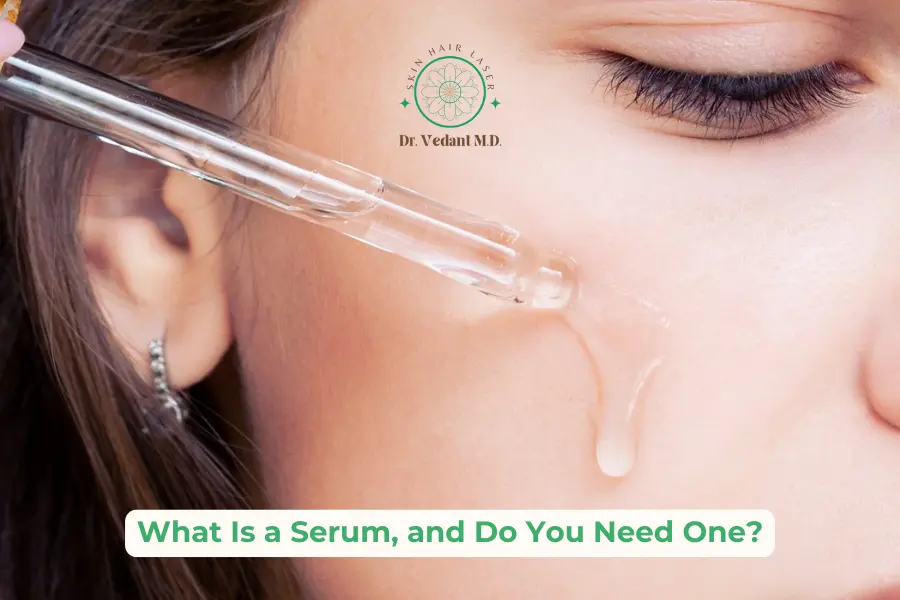
In the world of constantly changing skincare, serums have earned a major spot on bathroom countertops and beauty counters. In this blog, Dr Vedant Ghuse, a leading skin specialist in Chembur, explains what a serum is, and whether you actually need one in your skincare routine.
A serum is a light skincare product containing a high active concentration of ingredients. In contrast to moisturisers, serums are thinner and not as rich and thick. This thinner consistency enables them to penetrate deeper into the skin and deliver powerful ingredients such as vitamin C, hyaluronic acid, retinol, or niacinamide.
There are numerous varieties of serums, each formulated to address distinct skin issues. Some of the most common types of serum are:
Serums work by delivering concentrated active ingredients directly to the skin. Owing to their light molecular weight, they penetrate deeper than thicker creams. With this, they are very effective at addressing specific issues like dullness, dryness, wrinkles, or acne.
Serums are typically applied following cleansing and preceding moisturising. This order allows the active ingredients to fully absorb into clean skin, followed by a moisturiser to lock in the benefits.
The short answer: it depends on your skin type, concerns, and goals.
If you have fairly balanced skin and limited concerns, you may not require a serum. A simple cleanser and moisturiser might suffice. But if you're facing particular issues, such as dryness, dark spots, or early signs of ageing, a serum can be a lifesaver.
For example:
Even if you do not have a severe skin problem, serums can complement your regimen by providing your skin with an extra boost of hydration or radiance. Consider them like a strong vitamin: not necessarily required, but very useful in many cases. However, according to Dr Vedant Ghuse, an experienced skin specialist doctor near me that you can search for, recommends using them cautiously.
When choosing a serum, keep your skin type and main issues in mind. Always patch test, particularly with actives such as retinol or acids, to prevent irritation. Also, test if the serum blends well with your other products; some pairs can create redness or sensitivity.
If you're just starting out with serums, ease into it, maybe twice a day or every other day, and see how your skin reacts.
Serums are not just a skincare trend; they're an effective tool for targeting specific concerns and enhancing your skin’s overall health. While not everyone needs a serum, most people can benefit from incorporating the right one into their routine. With so many formulations available, there's likely a serum suited to your unique skin needs. Connect with a specialist like Dr Vedant Ghuse, the best skin specialist in Chembur, to understand your skin better and the products that will be best for your skin.